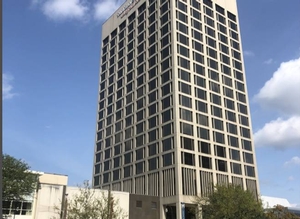Payment Bond Claims on Public Construction Projects
By Adam C. Ponte on July 18, 2019Those of us in the construction business, whether as a project owner, general contractor or subcontractor/supplier, know all too well that payment claims or set-off claims are to be expected throughout a project’s life cycle. Despite the best efforts of a general contractor that timely submits requisitions, or a subcontractor that timely and properly completes its work, monetary claims permeate even the best-run construction projects. This article focuses on public construction projects in Massachusetts, and the critical rules surrounding claims made on the project payment bond. Knowledge of these rules is particularly helpful for the general contractors that provide the bond and the subcontractors and suppliers that seek claims under said bond.
I. THE PAYMENT BOND STATUTE FOR PUBLIC CONSTRUCTION PROJECTS
In Massachusetts, a general contractor is ordinarily required to issue a payment bond to the project owner if the construction project’s value exceeds $25,000. (See M.G.L. c. 149, § 29). The law also requires that the bond must cover at least 50% of the total contract price. Prior to 2010, general contractors were required to furnish bonds when the project value exceeded $2,000 for local governments or $5,000 for contracts with the state. Presently, however, $25,000 is the threshold requirement for all public construction projects when determining whether a payment bond is required. This threshold covers all construction projects where a local government or the state is the project owner. (See Changes to Municipal Procurement Laws, July 27, 2010, http://www.mass.gov/ig/publications/guides-advisories-other-publications/changes-to-municipal-procurement-laws-july-2010.html).
II. SUBCONTRACTORS AND SUPPLIERS, AT ALL LEVELS, ARE COVERED BY THE PAYMENT BOND STATUTE
Under M.G.L. c. 149, § 29, all subcontractors and suppliers on a public construction project that meets the minimum threshold value are entitled to assert claims against the project’s payment bond. If you are a second, third or even a fourth level subcontractor, and you have not been timely and fully paid, then you may seek payment under the bond. General contractors and subcontractors all must be aware of the critical notice requirements under the law. Failure to abide by these requirements could be fatal to a subcontractor’s claims on the payment bond, or, conversely, the ultimate defense for a general contractor to avoid payment obligations under the bond.
A. FIRST-LEVEL SUBCONTRACTOR
A “first level” or “first tier” subcontractor is a contractor that has a direct contract with the general contractor. If the general contractor on a public construction project has failed to pay a first-level subcontractor within 65 days after payment was due, the subcontractor may immediately bring an action in the Massachusetts Superior Court to assert claims against the payment bond.
B. SECOND LEVEL AND LOWER LEVEL SUBCONTRACTORS
A “second level” or “second tier” subcontractor, or any lower-level subcontractor, is a contractor that does not have a direct contract with the general contractor. Any second level or lower level subcontractor must give written notice of its claim on the payment bond within 65 days after the date on which the subcontractor last performed work on the project. If the subcontractor fails to give the general contractor clear and explicit written notice within 65 days of completing its work, the subcontractor likely is foreclosed from bringing any payment bond claims.
Under M.G.L. c. 149, § 29, the written notice of a claim on the bond must, at a minimum, state: the monetary amount claimed; (ii) an explicit identification of the subcontractor making the claim; and (iii) an explicit identification of the party that received the labor or materials from the aggrieved subcontractor.
If the subcontractor has not been fully paid for its project work within 65 days after payment was due, and said subcontractor had provided explicit notice of the bond claim within 65 days of last performing its work, then the subcontractor may file suit in the Massachusetts Superior Court to assert claims on the payment bond.
C. ONE YEAR STATUTE OF LIMITATIONS
Any and all subcontractors and suppliers, on any level, must bring an action to assert claims on the payment bond within one year of last performing on a public construction project. The one year statute of limitations will be calculated from the date which the subcontractor or supplier last performed on or furnished materials to the project. The project’s overall substantial completion date or last date on which the general contractor furnished work is irrelevant to this analysis.
III. CONCLUSION
It is important to understand the rules surrounding payment bond claims on public construction projects. Knowing your rights or duties under M.G.L c. 149, § 29 could make the difference, depending on your role, in building a defense against a subcontractor’s inappropriate claims, or in creating leverage against a general contractor who has not fully paid you as a subcontractor for properly completed work.

















